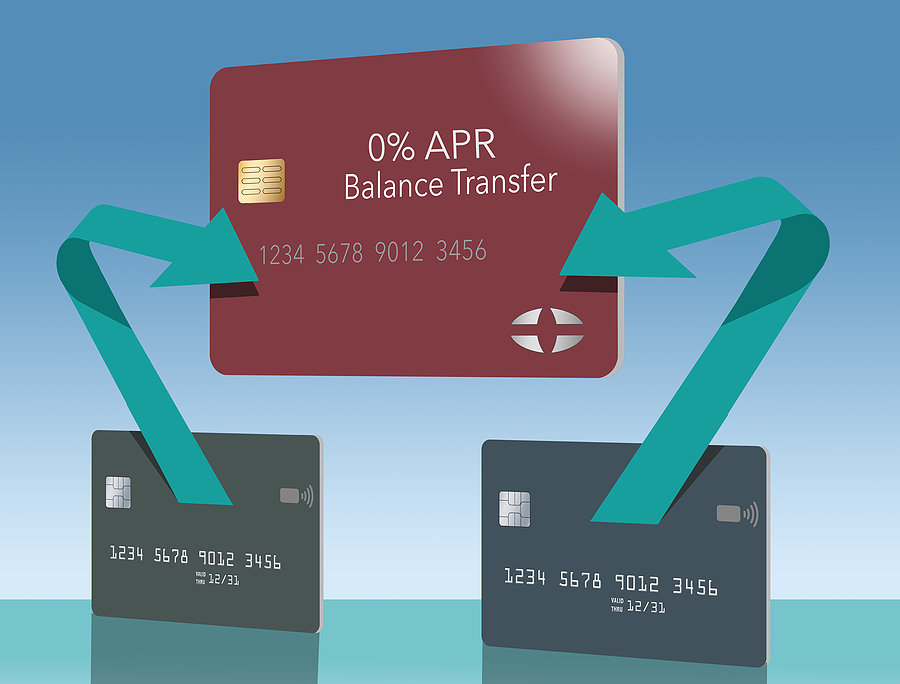
The NFCC often receives readers questions asking us what they should do in their money situation. We pick some to share that others could be asking themselves and hope to help many in sharing these answers. If you have a question, ask an expert.
This week’s question: I have two questions related to opening a new credit card for a balance transfer offer. For my credit score, is the negative mark of a new account offset by increase in available balance? With a 0% intro offer, does interest silently accrue in the background to be added at the end of the into period? It’s not likely I would pay of the balance completely, and I would hate to be surprised by 18 months of interest.
A balance transfer usually works best for consumers dealing with small debts and who plan to pay them off before the 0% promotional period ends. If used wisely, it can save consumers quite some money, but that’s not always the case. Whenever you transfer your balance without a repayment strategy, you are just postponing your payments and not really dealing with your debt. The advantages of a balance transfer will ultimately depend on your repayment ability and your current credit score. If you don’t have a good credit score, it is unlikely that you will qualify for a credit card that would offer you a good enough deal to make the balance transfer worth it. With that in mind, let’s address your questions.
How a Balance Transfer Affects Your Credit Score
There’s no way to know exactly how much a credit score will increase or decrease by any given action. It all depends on your current credit history. But, in general, balance transfers can hurt your score by adding a hard inquiry on your credit report and reducing your single-card utilization ratio. Your utilization ratio is how much debt you have on your credit cards divided by the total amount of your available credit. This ratio is calculated both per card and as a total. So, you may be increasing the single-card utilization ratio on one card but decreasing your overall utilization ratio, which will boost your score. It’s important to understand that you will only see a boost in your score if you maintain a zero balance on the old credit card and you do not add any new balances on the new.
Know the Details About the 0% APR Introductory Rate Offer
After the 0% promotional period ends, most credit cards will charge you interest on new purchases and the remaining balance that’s on the card. You may not have to deal with a sneaky interest rate accumulating in the background, but you may be caught off guard by the fees and overall costs of your balance transfer, especially if you won’t be able to pay it off before the promotional period ends. Balance transfer fees usually range from 3% to 5%, depending on the card. So if you are planning to transfer $4,000 with a 3% balance fee, that’s $120 just for the transfer. In addition, some credit cards charge annual fees.
You need to know what your interest rate will be after the promotional period ends. Sometimes, these interest rates are higher or similar to what you already have. So mathematically speaking, your savings on interest may not be what you expected in the long run. For a more accurate assessment, use an online calculator to help you determine how much interest you could save on a balance transfer and how much you’d pay on the remaining balance after the promo period ends. Compare all this with what you are expected to pay on your current credit card to determine if the balance transfer is worth it. You can find details of how much you will pay on interest on your current credit card on your monthly statement.
Consider Alternative Payment Options
No different than any financial move, balance transfers have pros and cons. On the one hand, you could move your balance to a new card with better terms and save on interest. On the other hand, you could end up with a higher interest rate after the promo period ends and not save as much as expected. But the biggest risk of all is taking on more debt than you can handle. If you know you won’t be able to pay off your balance after the promotional period ends, you will likely end up right where you were, possibly with more debt and fewer repayment options. So, I suggest you talk to an NFCC Financial Counselor to discuss other repayment options that could help you to deal with your debt effectively without moving it around. If you move forward with the balance transfer, do your best to pay it off before the promo period ends and make a plan to deal with the old card. If you feel tempted to use it, consider canceling it even though it will hurt your credit. You still have options, so use choose them carefully. Good luck.

